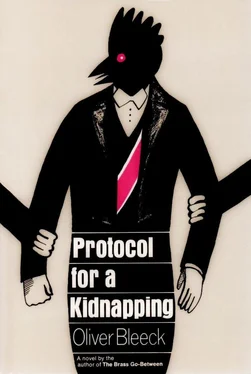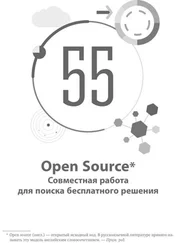Park Tyler Wisdom and his appreciation of the absurd, I’d decided, could be nothing but useful during the next few days.
The flight to Frankfurt was uneventful, except for the twenty-two dollars that Wisdom won from me at gin. We positioned Knight on the aisle seat where his actor’s profile assured us of proper attention from the stewardesses, all of whom claimed to have seen his last play.
“Highly doubtful,” Knight told us, “since it closed after two performances.”
“They’re probably thinking of the one before that,” Wisdom said.
“It closed after six.”
Although the Frankfurt airport seemed to have grown smaller since my last trip there, the beer was still the same, and I was enjoying a half-liter of it when Knight said, “Do you have any relatives here?”
“None that I know of.”
“There’s a guy at the end of the bar behind you who could almost be your double except that he doesn’t yet have your dyspeptic glow.”
I didn’t turn. “Does he have on a gray topcoat?”
“Yes.”
I turned then and used the mirror to look at the end of the bar. When Artur Bjelo’s eyes met mine in the mirror they didn’t hesitate or flicker in recognition. They just kept on going, not hurriedly, but indifferently, as if they were looking for something more interesting to light on than the face of someone they’d apparently never seen before.
I moved down to the end of the bar and tapped him on the shoulder. “Mr. Bjelo,” I said.
He turned at the tap and smiled boyishly and then said something in a language I didn’t understand, but assumed to be Serbo-Croatian.
“We met day before yesterday,” I said, matching his smile in width, if not in years. “We had a drink or two together and talked about poetry.”
He shrugged and smiled again and shook his head helplessly in the universal gesture of apologetic incomprehension.
“You almost got run over,” I said.
An Englishman standing next to Bjelo was casually following the abortive dialogue. “I’m afraid he doesn’t understand a word you say,” he said. “He says he speaks nothing but Serbo-Croatian. I know a bit of it, if you’d like me to tell him something.”
“Thank you,” I said to the Englishman who rattled something off to Bjelo who nodded and smiled his appreciation.
“Now what would you like me to tell him?” the Englishman asked.
“Tell him he’s a goddamned liar,” I said, turned, and went back up the bar to my beer.
“Did you know him?” Knight asked me.
“I thought I did, but he thought I didn’t. Where’s Park?”
“He’s gone to buy a cuckoo clock. One of those Black Forest things.”
“What for?” I said.
Knight sighed and drank the rest of his beer. “I somehow thought it best not to ask.”
“You’re probably right,” I said.
The three of us were among the first half-dozen passengers to board JAT flight 351 and after we sat there for nearly thirty-five minutes and nothing moved, Knight turned on his charm and asked the Yugoslav stewardess about the delay.
“We are waiting for a passenger,” she said. “It should not be much longer now.”
The passenger boarded the plane five minutes later and he didn’t seem any more concerned about causing the delay than he had been about telling me in English that his name was Artur Bjelo and denying it in Serbo-Croatian two days later. He sat in the aisle seat nearest the exit and neither read nor slept during the three-and-one-half-hour flight. Neither did I.
Bjelo was the first passenger off when we landed at Surcin International Airport near Belgrade and although I looked for him as we went through customs, he seemed to have already cleared them, possibly because he had nothing to declare, not even any more lies.
After we got through customs I started looking around for something young and about six feet tall in a nicely tailored dark suit whose center vent might be a full fourteen inches but whose lapels wouldn’t be wide enough to cause any stir at the embassy’s annual Fourth of July tea and fireworks do.
I was looking for something male with a slightly superior, world-weary expression who couldn’t quite hide his irritation at having been assigned to meet us at the airport, and who could rattle off instructions to the baggage handlers in fluent Serbo-Croatian which he’d picked up in six weeks or so because he had a sponge for a brain and languages came just ever so easy for him.
That’s what I was looking for out of prejudice or propaganda or both, so when I got jabbed in the ribs and turned I wasn’t prepared for a mop-haired blonde, about five-one in a brown dress that barely covered the V where her legs joined together, and who wore a saucy, go to hell grin, and who dragged a long, suede coat, and who wanted to know if I, for Christ sake, was Philip St. Ives.
“I’m St. Ives.”
She frowned at a slip of paper she held. “Where the hell are the other two, Mr. Costly and Mr. Expensive?” She thrust the paper at me. “That’s what it says, Jack; I didn’t make it up.”
I wondered if Coors had chuckled over his little joke.
“They couldn’t come,” I said. “Instead, I brought Mr. Wisdom, who’s the solid-looking gentleman on your left, and Mr. Knight, the handsome devil on your right.”
She grinned and stuck out her small hand and gave me a firm grip and then did the same thing to Wisdom and Knight. “I’m Arrie Tonzi,” she said, “and I’m your official embassy escort and if you don’t like girls, then you’ll have to see somebody about it tomorrow, because you’re stuck with me this afternoon.”
“I think you’re beautiful, Miss Tonzi,” Wisdom said and smiled mournfully.
“I think the State Department has been most thoughtful,” Knight said, giving her his best smile.
“You’re right,” she said to me, “he is goddamned handsome.”
“He’s an actor feller,” I said. “Sneaky.”
“Hey! I know you! ” she said to Knight.
“I’d rather have money than fame,” Wisdom said to no one in particular.
She put her face up close to Knight’s and stared at it. Then she snapped her fingers with a loud pop. In his face. “You did the lonesome fireman in all those deodorant commercials about two years ago.”
“Yes,” Knight said. “We’d fallen upon hard times.”
“If it weren’t for his residuals, he’d be a pauper,” Wisdom told the girl. “I, on the other hand, am rich beyond your wildest dreams and am I not fair of countenance?”
“Who’re you,” she said, “Wisdom or Knight? I’m no good at names.”
“I’m Wisdom,” he said. “Knight’s the prettied-up, married one over there.”
“Did your wife come?” she said to Knight.
“She couldn’t make it.”
“Good,” she said and turned to me, dragging her long coat over the floor. “What are you, St. Ives, the tour leader?”
“Something like that.”
“You do this for a living?”
“What?”
“Ransom ambassadors.”
“It’s my first ambassador,” I said. “I started out West, first ransoming sheep, then worked up to horses, and finally to people. But this is my first ambassador and I hope you don’t mind if I’m just a little nervous.”
She widened her stance, put her fists on her hips, and looked up at me. “I would say you’re putting me on, but I can’t stand the phrase. You are bullshitting me, aren’t you?”
Wisdom sidled up behind her and whispered hoarsely into her ear. “Look at his pallor, doll. The guy’s no more’n a week out of Dannemora.”
“Who is he?” she demanded of me.
“Mr. Wisdom provides our comic relief,” I said seriously. “He’s young and brash and fun-loving. Mr. Knight, a wiser, older head, will shortly pull out a briar pipe and suck on it to demonstrate his sadly gentle disapproval of Mr. Wisdom’s exuberance. I serve as the levelheaded balance, equally tolerant of youth’s foolish foibles and middle age’s dull despair.”
Читать дальше












